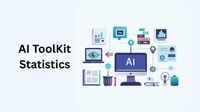The U.S. government is intensifying its scrutiny of Google, urging a judge to consider drastic measures, including the spinoff of its Chrome web browser, as concerns mount over the tech giant’s dominance in search and advertising technology. This push comes on the heels of recent rulings that found Google unlawfully maintained monopolies in both online search and ad tech.
During a hearing before District Judge Amit Mehta, the Department of Justice (DOJ) argued that allowing Google to continue its current practices could jeopardize the future of the internet. Assistant Attorney General Gail Slater emphasized the stakes, stating, "Nothing less than the future of the internet is at stake here." She warned that if Google's behavior remains unchecked, it could dominate not only internet search but also emerging technologies like artificial intelligence (AI) for the next decade.
Google, however, has vehemently disputed these claims, labeling the DOJ's proposals as extreme and vowing to appeal any unfavorable ruling. The company's president of global affairs, Kent Walker, criticized the DOJ's plans, arguing that they represent a radical interventionist agenda that could harm both American consumers and the country’s technological leadership.
The DOJ's antitrust case against Google was initially filed in 2020, and a significant ruling was made in August 2024, in which Judge Mehta concluded that Google held an illegal monopoly in online search. This ruling set the stage for the current discussions regarding potential remedies to address Google's market power.
In a parallel development, just days before the hearing, another U.S. judge ruled that Google also wields monopoly power in the online ad technology market. This ruling is particularly concerning for Google as it forms a substantial part of the company's revenue stream. The federal government, along with over a dozen states, is pursuing this antitrust case, accusing Google of illegally dominating three key sectors of digital advertising: publisher ad servers, advertiser tools, and ad exchanges.
District Court Judge Leonie Brinkema agreed with the DOJ's assessment, stating that Google has engaged in a series of anticompetitive acts to acquire and maintain monopoly power in the ad server and exchange markets. She noted that Google further entrenched its position through anticompetitive customer policies and by eliminating desirable product features.
Online advertising is the lifeblood of Google's business, funding widely used services like Maps and Gmail. The recent courtroom defeats could significantly reshape the landscape of digital advertising and the broader tech industry. Google is currently appealing both rulings, and the outcomes could lead to a substantial restructuring of the company.
As the legal battles unfold, the implications for the broader tech ecosystem are profound. The DOJ's actions signal a growing willingness to challenge the power of major tech companies, a trend that could reshape the competitive landscape in the U.S. and beyond.
Meanwhile, the global AI industry is projected to surpass $1.8 trillion by 2030, with significant growth anticipated in sectors like banking, where generative AI alone could boost revenues by $340 billion. AI tools are becoming increasingly integral to business operations, with 73% of businesses acknowledging that they still waste time on tasks that AI could automate.
Recent statistics reveal that employees utilizing AI tools report an impressive 80% improvement in work performance. Furthermore, three out of five business leaders believe that AI adoption will lead to increased sales. One notable case highlighted a company that experienced a 30% rise in customer satisfaction following the implementation of AI solutions.
Despite the potential benefits, a significant challenge remains: a shortage of qualified talent in the AI field. Approximately 73% of companies are striving to hire workers with AI skills, yet many report difficulties in finding suitable candidates. This gap poses a critical hurdle as organizations seek to leverage AI for competitive advantage.
Looking ahead, it is estimated that AI could contribute as much as 26% to local economies' GDP by 2030. However, ethical concerns loom large, with 60% of companies using AI lacking established ethical guidelines and 74% failing to address potential biases in AI systems.
The AI toolkit market is experiencing rapid growth, expected to reach around $404.1 billion by 2033, a significant increase from $24.6 billion in 2023. This growth is driven by the increasing volume of data generated by businesses, the need for faster decision-making, and advancements in computing power that make AI tools more accessible.
In 2023, North America led the AI toolkit market, generating $8.4 billion and accounting for 34.8% of global market share. The software segment dominated, holding over 60.2% of the market, with machine learning technologies maintaining a leading position.
As businesses increasingly adopt AI, the demand for AI toolkits is particularly pronounced in industries that rely on accuracy and efficiency. The IT and telecom sectors are also heavily investing in AI to enhance operational capabilities and customer support.
In terms of developer tools, OpenAI’s ChatGPT emerged as the most widely used AI tool among developers in 2024, with 82% reporting frequent use. GitHub Copilot and Google Gemini followed, highlighting the competitive landscape of AI development tools.
As AI continues to reshape industries, it raises questions about the future of work. While many leaders predict job creation through AI advancements, concerns persist regarding job displacement, particularly in roles heavily reliant on routine tasks. A recent survey found that 38% of U.S. workers fear that AI could render their jobs obsolete.
Despite the uncertainties, the potential of AI to enhance productivity and drive innovation is undeniable. As businesses and workers navigate this evolving landscape, the importance of upskilling and adapting to new technologies will be paramount.


